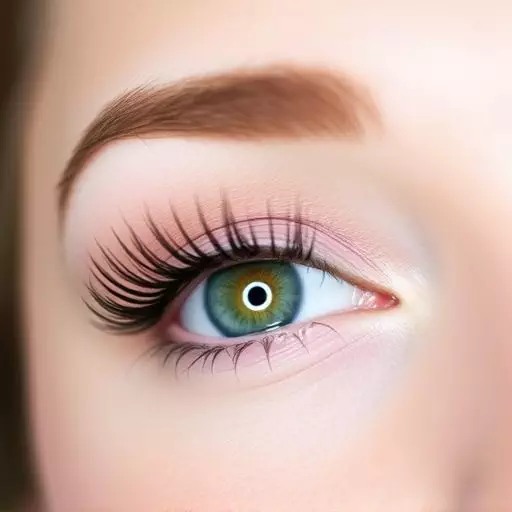Acne scar discoloration results from damaged collagen and elastin during flare-ups, leading to various scar types. Treatments like laser therapies (especially microneedling) stimulate collagen production, evening out skin tone and reducing scarring over time. Microneedling creates micro-channels for better product penetration and healing. Chemical peels exfoliate damaged layers, revealing smoother, brighter skin. Topical creams with hydroquinone inhibit tyrosinase to reduce hyperpigmentation. A healthy lifestyle, including sun protection, enhances the effectiveness of advanced treatments like laser therapies and microneedling. Consulting a dermatologist is crucial for personalized, effective acne scar treatment options tailored to individual needs.
Acne scar discoloration can leave a lasting impact on one’s skin and self-confidence. Understanding the various causes and types of this issue is the first step towards effective treatment. This comprehensive guide explores advanced acne scar remedies, from modern laser treatments and microneedling to chemical peels and topical creams. We also delve into lifestyle changes and professional consultations, providing a holistic approach to achieving clearer, more even skin.
- Understanding Acne Scar Discoloration: Causes and Types
- Laser Treatments: A Modern Approach to Advanced Acne Scar Treatment
- Microneedling: Unlocking the Potential for Effective Acne Scar Reduction
- Chemical Peels: Exfoliating for a More Even Skin Tone
- Topical Creams and Serums: Active Ingredients for Lightening Acne Scars
- Lifestyle Changes: Nutrition and Sun Protection for Healthy Skin
- Professional Help: Consulting Dermatologists for Personalized Solutions
Understanding Acne Scar Discoloration: Causes and Types
Acne scar discoloration is a common concern, often leaving individuals with unwanted patches of pigment that can impact their self-confidence. Understanding the causes and types of this condition is the first step towards effective treatment. Acne scars form when the skin’s collagen and elastin fibers are damaged during an acne flare-up. This damage can lead to various scar types, including icepick, boxcar, and atrophic scars, each with unique characteristics.
The discoloration that often accompanies acne scars is a result of hyperpigmentation or hypopigmentation. Hyperpigmented scars appear darker than the surrounding skin, while hypopigmented scars are lighter. Advanced acne scar treatment options like laser treatments for acne scars and microneedling for acne scars have gained popularity due to their ability to stimulate collagen production and even out skin tone. These methods offer promising results in addressing both the physical texture of scars and the discoloration that may persist long after the initial breakout.
Laser Treatments: A Modern Approach to Advanced Acne Scar Treatment
Laser treatments have emerged as a modern and highly effective approach to advanced acne scar treatment, offering hope for those struggling with discoloration left by severe acne. These innovative procedures utilize targeted laser energy to stimulate collagen production and resurface the skin, reducing the appearance of scars over time. Microneedling, a popular laser treatment technique, creates tiny micro-channels in the skin, encouraging the body’s natural healing process and enhancing product penetration for optimal results.
By breaking up scar tissue and promoting the growth of healthy new skin cells, laser treatments can significantly improve the overall texture and tone of the skin. This advanced acne scar treatment is particularly effective for atrophic scars, where the skin has sunk in, creating a depressed appearance. With careful consideration and guidance from dermatologists, individuals can experience visible reductions in scarring and achieve clearer, more even-toned complexions.
Microneedling: Unlocking the Potential for Effective Acne Scar Reduction
Microneedling, an advanced acne scar treatment that uses tiny needles to create controlled micro-injuries in the skin, has gained popularity as a highly effective method for reducing the appearance of acne scars. This procedure stimulates the body’s natural healing process by encouraging collagen production and skin cell regeneration in the treated areas. By promoting the growth of new, healthy skin cells, microneedling can help to even out skin tone and texture, leaving behind a more uniform and radiant complexion.
As compared to laser treatments for acne scars, which often target specific pigmentations or blemishes, microneedling takes a more comprehensive approach by treating the entire affected area. This makes it an ideal choice for those with widespread acne scarring or complex skin tones. The procedure is generally well-tolerated and offers long-lasting results, making it a preferred method in the world of advanced acne scar treatments.
Chemical Peels: Exfoliating for a More Even Skin Tone
Chemical peels are a popular advanced acne scar treatment that offers significant benefits in terms of skin rejuvenation and even tone. This procedure involves applying chemicals to the skin’s surface, which carefully exfoliates and removes damaged layers, revealing smoother, brighter skin underneath. By targeting hyperpigmentation left by acne scars, chemical peels can help reduce the appearance of discoloration and promote a more uniform complexion.
Among the various types of chemical peels, those with higher concentrations of acid like glycolic or salicylic acid are particularly effective for acne scar treatment. Laser treatments for acne scars and microneedling are also recommended as complementary procedures to enhance the results of chemical peels. These advanced techniques stimulate collagen production, further improving skin texture and overall appearance, ensuring a more even and radiant skin tone is achieved.
Topical Creams and Serums: Active Ingredients for Lightening Acne Scars
Many people turn to topical creams and serums as a first step in their journey towards achieving clear, even-toned skin. These products offer a non-invasive approach to lightening acne scars, targeting discolored areas for a more uniform complexion. The active ingredients in these formulations play a crucial role in advanced acne scar treatment. Hydroquinone, for instance, is a popular agent known for its ability to inhibit tyrosinase, the enzyme responsible for melanin production, thus helping to fade post-inflammatory hyperpigmentation.
While topical treatments are effective, some may prefer or require more intensive options like Laser treatments for acne scars and Microneedling. These advanced procedures stimulate collagen production and promote skin cell turnover, which can significantly improve the appearance of depressed acne scars. Each method has its advantages and considerations, catering to different preferences and skin types for a clearer, more radiant complexion.
Lifestyle Changes: Nutrition and Sun Protection for Healthy Skin
Maintaining a healthy lifestyle can significantly impact your skin’s appearance and overall health, especially when addressing acne scar discoloration. Nutrition plays a crucial role in skin rejuvenation; incorporating antioxidant-rich foods like berries, leafy greens, and citrus fruits into your diet can help reduce inflammation and promote collagen production. Collagen is essential for repairing damaged skin and reducing the visibility of scars.
Sun protection is another vital aspect often overlooked but incredibly effective. Prolonged sun exposure can darken acne scars and hinder healing. Using broad-spectrum sunscreen daily, wearing protective clothing, and avoiding peak sunlight hours are practical steps to prevent further discoloration and ensure your chosen advanced acne scar treatment, such as laser treatments or microneedling procedures, offers the best possible results.
Professional Help: Consulting Dermatologists for Personalized Solutions
For many, seeking professional help is a pivotal step in addressing acne scar discoloration. Dermatologists offer advanced acne scar treatment options tailored to individual needs. They can recommend various techniques such as laser treatments for acne scars and microneedling for acne scars, which have proven effective in reducing visible scarring and improving skin texture.
Consulting a dermatologist ensures a personalized approach, accounting for skin type, severity of scarring, and other factors. These professionals have the expertise to guide patients through the best available treatments, offering hope for achieving clearer, more even skin tones.


